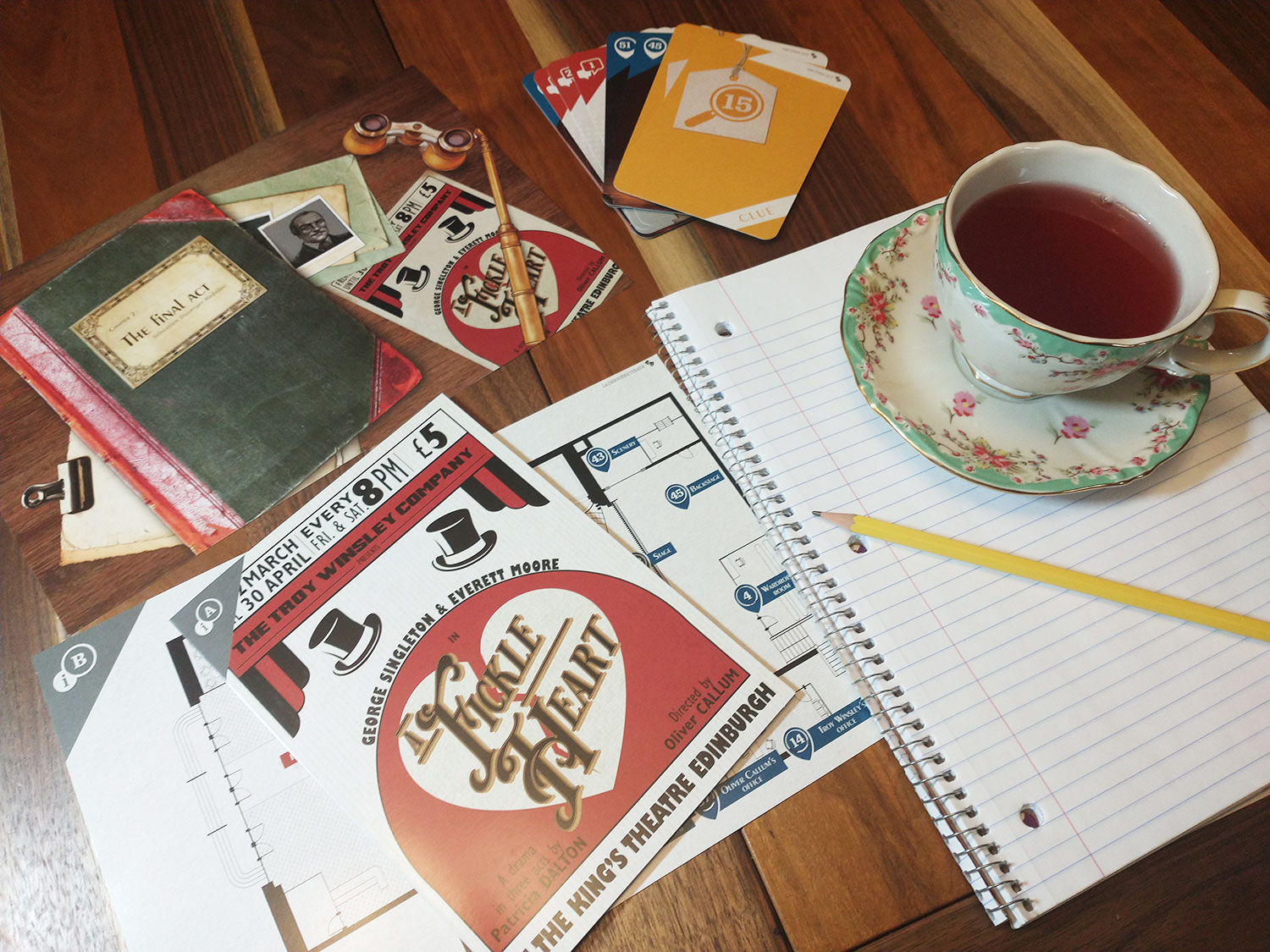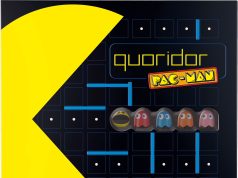 Many of us grew up playing the classic mystery game of Clue (aka Cluedo), and since then, the craving for a good mystery to solve hasn’t gone away, even if some of the games of our childhood have. Thankfully, these days there’s no shortage of such games, and things have evolved a lot since Clue. Suspects: Claire Harper Takes the Stage is just one recent contribution to this still thriving genre; in it, 1-6 crimebusters will take on the role of Detective Claire Harper in an attempt to solve the three cases included in the box. Playtime is at least 90 minutes per case.
Many of us grew up playing the classic mystery game of Clue (aka Cluedo), and since then, the craving for a good mystery to solve hasn’t gone away, even if some of the games of our childhood have. Thankfully, these days there’s no shortage of such games, and things have evolved a lot since Clue. Suspects: Claire Harper Takes the Stage is just one recent contribution to this still thriving genre; in it, 1-6 crimebusters will take on the role of Detective Claire Harper in an attempt to solve the three cases included in the box. Playtime is at least 90 minutes per case.
Gameplay Overview:
Each case in Suspects: Claire Harper Takes the Stage uses an associated deck of numbered cards, a solution envelope, and a couple of documents to be consulted during the game.

At the start of the game, players will read an introduction to the case and will be given access to some of the cards in the deck to get them started. The numbers on the cards will let players know which ones they have access to at any point in the game, based on the documents and other cards they have drawn. Some cards will need to be unlocked by finding certain symbols first. Cards might be associated with a suspect, witness, location, or potential evidence.
As players read the information, their goal is to solve the case by answering five or six questions associated with the case, using the information they have deduced. The fewer cards you need to look at in order to solve the crime, the better your score will be. Once players reach a checkpoint, they can record any answers they think they have found, and then continue to play.
Each deck contains over 50 cards—the exact number depends on the case—and after the deck runs out, players must record any final answers and open the solution envelope. They will score points based on the number of correct answers recorded (and how early they answered them). Then they check which outcome they achieved based on their score.

Game Experience:
Understanding how to play Suspects is pretty easy, but solving the actual crimes will not be so simple. The rules encourage players to think logically, rather than follow their gut instinct, and so come to a logical solution for the crime.

For the most part, that works, and it’s fun to see things starting to come together as you examine the evidence and connect the dots, while also ruling out certain suspects based on evidence. Yet there were also instances where I felt leaps of logic were required, and extrapolations expected from the players felt far-fetched. I had trouble accepting some of the motives, as did the others who joined me for one of the cases. There was also at least one instance where it seemed the criminal could have been almost anybody, and the actual culprit felt less likely, even based on evidence, than the other suspects. Of the three cases, only one felt solid. Half of the time I was in the rhythm of the game, enjoying the experience as I put the pieces together, but the other half I was frustrated.
I did like how simple it was to just pull out a deck of cards, read the introduction, and get started. On the other hand, as the game progressed, I found myself with various piles of cards scattered all over the table as I attempted to keep associated evidence together, which was somewhat messy—though maybe that was my own poor organizational skills at work !

The game length felt decent, though I found I preferred to take a break about halfway through a case and finish in another session, so it did feel a little long. On the other hand, had the cases been shorter they might have been too shallow. You get a decent amount of gameplay out of the box, but it’s important to note that these cases will not be replayable by the same players as the solutions won’t change. That said, no permanent changes are made to the components and it’s easy to reset everything in order to pass it along to someone else. I didn’t play with the full count of six players, but I have a feeling you could have a “too many cooks” situation if you did. It works great solo, but it can also be nice to have one or two others to bounce ideas off of.
Final Thoughts:
My feelings on this game are mixed. Sometimes the story got in my head—in a good way—and I felt like Sherlock Holmes puffing his pipe and pacing the floors of apartment 221B, while other times the level of frustration and even bafflement soured the experience. It was as if Suspects works so hard to mislead you that it creates “red herrings” that could have been just as plausible as the solution found in the envelope. I typically scored middling on the cases, and in two out of three, I was able to accurately identify the killer, so I don’t think this a case of being a sore loser so much as a frustrated player.
Final score: 3 Stars – It’s no Sherlock Holmes: Consulting Detective, but it’s not a bad addition to the genre.
 Hits:
Hits:
• Easy to jump in and start playing
• Clever crime solving at least half the time
Misses:
• Some solutions felt far fetched
• Sometimes more frustrating than fun
• Limited replay





















